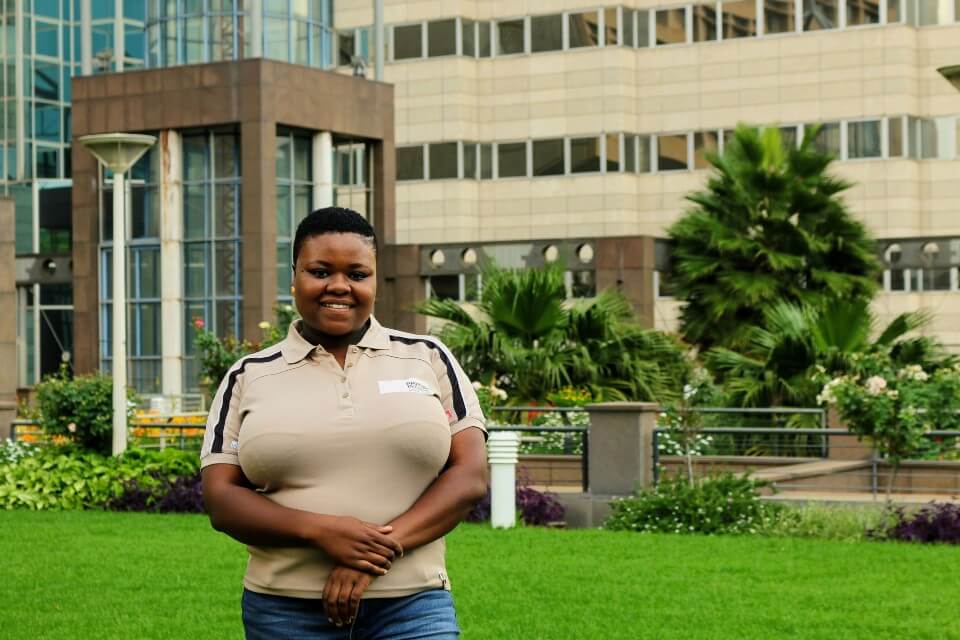I am Generation Equality: Community-based Innovator and activist against gender-based violence in Zimbabwe
Billions of people across the world stand on the right side of history every day. They speak up, take a stand, mobilize, and take big and small actions to advance women’s rights. This is Generation Equality.Date:


- Join women’s movements in your area
- Share domestic care work
- Urge your organizations and communities to donate towards helping women facing rights’ violations
I am Generation Equality, because…
I speak for women’s rights because I want to help end practices, belief systems and customs that seem acceptable in our society and have been passed on for generations, yet they violate women’s rights. I started this work by volunteering for women’s rights initiatives. I am inspired by progress on the right to vote and own property advocated for by feminists, and I believe our generation of feminists can achieve results that future generations will thank us for.
Child marriages and forced marriages are the most urgent issues of our time. The ground is not level for young women who are married off against their will. In most cases, this psychologically can affect their overall performance yet they are still expected to excel in the same way as male counterparts.
Tell us about your work?
I am a Spotlight Innovator. Spotlight Innovators are community-based behaviour change advocates who support the programs and administrative work of the Spotlight Initiative. This includes capacity building of local women’s groups. Innovators motivate community members to ignite the sometimes-dormant power that they possess to end all forms of violence against women, and, together with the community members, innovate solutions. They also manage advocacy campaigns and build partnerships with community stakeholders all aimed at building a strong movement to end violence against women.
I am a co-founder of Taking a Stand Against Gender-based Violence, a campaign that runs advocacy initiatives through platforms such as WhatsApp group platforms and community based forums, and distributes knowledge-building materials for behaviour change. These platforms share knowledge on referral pathways, safe shelters, and national hotlines.
I formed support networks for community members in times of restricted movement. Women in my area have benefited from the relationships they have built with fellow women. The testimonies and results in my area show that women feel free to report cases of violence and share personal struggles when they belong to support networks.
What’s your advice to young people on actions they can take?
Young people must share knowledge on gender equality with peers in their communities and social media circles. Young people should belong to support networks, movements and community initiatives that thrive in advancing social and gender equality and the empowerment of women. They should harness the power of numbers. Networking offers limitless opportunities for young people. It offers support systems for young people growing up in violent setups.
What can everyone do to promote women’s rights?
Everyone must be willing to influence behaviour change, and this can be achieved through small but connected efforts. Everyone must influence their inner circle to respect women’s rights before they try to influence total strangers. Man can become part of the solution through mentoring younger boys to respect women’s rights and taking part in unpaid care work in the homes.
Why should everyone be a women’s rights activist?
Everyone should be a women’s rights activist because gender inequalities affect everyone from household level to national level. A lot of women are losing their lives everyday due to gender inequalities. The results we sometimes see on the surface will be because of long periods of anger built up.
In the lead up to the Generation Equality Forum Paris, what actions do you think are most needed to stop violence against women?
The specific issues are addressing the digital divide that is mostly affecting women and girls living in rural areas and from low-income backgrounds. These woman often face challenges in accessing opportunities. For example, these days most job adverts are online, most grant proposals are online, and most supply initiatives are online. So with out access to these, it may be difficult for them to access business and employment opportunities. The Action Coalition on Technology and Innovation for Gender Equality should finance community centres with access to internet connection for all. The Action Coalition on Gender-based Violence should finance the justice system. People will have more confidence in reporting cases of violence when they have confidence in the justice system. Community members will build confidence and feel proud to be behaviour-change advocates when they realize the results of their efforts.
Rufaro Chakanetsa, 28, is a community-based innovator against gender-based violence in Zimbabwe.